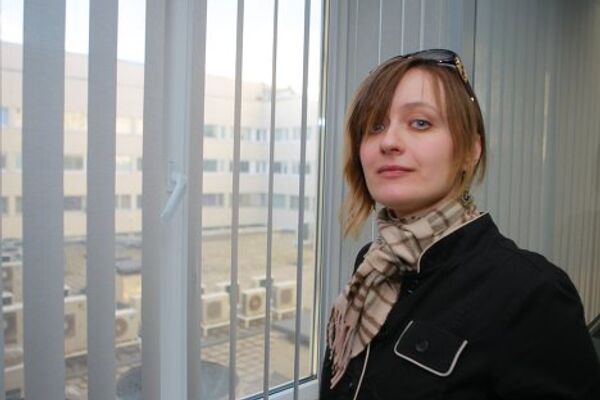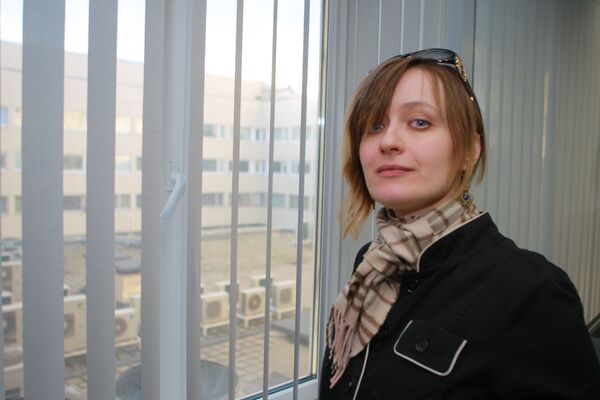Ever since opposition leader Alexei Navalny’s hero’s welcome back to Moscow at Yaroslavsky Station, I have been thinking about the local train stations – and what a “treat” they are to visit.

Navalny’s return to Moscow – after first being sentenced in Kirov to five years in prison and then, bizarrely, being released pending appeal the very next day – was heralded by a bomb threat at Yaroslavsky. At the very least, we were spared any “Navalny Is ‘Da Bomb!” headlines immediately following all of that.
What we’re not going to get spared any time soon is Oleg Gazmanov’s cheesy ode to Moscow, shockingly titled “Moscow,” that can frequently be heard playing as trains arrive and depart. The city’s hip Culture Department head, Sergei Kapkov, recently petitioned Russian Railways, the state railroad monopoly, to cut it out with the Gazmanov.
“It’s kitsch,” Kapkov said. I have nothing personal against Gazmanov, but in this instance I think Kapkov was even being a bit too kind.
Russian Railways replied by pointing out that so far they haven’t had any complaints about “Moscow” and the song stays.
It’s rare that I praise public services in my native city of Kiev as superior to the ones in Moscow, but on this one, I wish to God that Russian Railways would take heed of the example of the Ukrainian capital.
When I lived in Kiev for a few months following a disastrous breakup (Kiev is a good place to recover from that sort of thing, so do take note, broken-hearted people living in the world), the patriotic march “Farewell of Slavianka” could be heard playing at the local railway station as trains departed for Moscow. Perhaps some people consider that kitsch as well, but it’s still pretty life-affirming – and musically superior.
I think the reason why people don’t complain about Gazmanov’s “Moscow,” though, is that they usually find something else to complain about. And that something else is usually summed-up by the phrase “smelly hobos.” It’s not a particularly sensitive way to categorize the homeless people that flock to Moscow’s stations, but it’s a description that has firmly stuck.
Of course, “smelly hobos” aren’t really the issue either. For sure, if society actually cared about them, most of these unfortunate people wouldn’t be hanging around the stations either. At the very least, they would have a place to shower and proper clothes to wear. No, the real problem has to do with criminal gangs.
Take a close look at the people milling around the stations. Most of them are there for, shall we say, commercial reasons. Some are selling fake iPhones. Others act as pimps for desperate people selling their bodies.
I used to live pretty close to the Paveletsky Station, and there was always talk in the neighborhood about young people, either homeless or addicted to drugs, or both, who were prostituting themselves out there. The word on the street was that some of the local cops were in on it. No one ever proved it, I believe, but when a shopkeeper nearby was always warning the young women out after dark to “avoid being mistaken for something you’re not,” it did add to the general feeling of insecurity. Add to that the constant threat of possible terrorism, and you really begin to understand why most people dislike the train stations.
One evening, I made the unfortunate mistake of working on my laptop at a cafe by Paveletsky. It wasn’t even dark yet, but a shady character soon found his way to my table. He ordered some cognac for the both of us and said he wanted “to talk.” I refused the cognac and told the waitress I was being harassed. It took a burly looking manager to make the guy leave me alone, at which point I was too stressed out to consider staying.
As I was leaving, the manager approached me and offered a bit of advice. “We consider ourselves a nice establishment, but still, you shouldn’t eat here on your own,” he told me. “We’re right next to a train station. All kinds of people wander in.”
It was sound advice, but it made me sad. Moscow’s train stations aren’t just transportation hubs; after all, they are historic monuments. Despite the grime and the ugly store signs, they are beautiful.
Perhaps, one day, we can all enjoy their beauty without cognac-swilling weirdos – or worse – getting in our way.
Trendwatching in Russia is an extreme sport: if you’re not dodging champagne corks at weddings, you’re busy avoiding getting trampled by spike heels on public transportation. Thankfully, due to an amazing combination of masochism and bravado, I will do it for you while you read all about it from the safety of your living room.
Natalia Antonova is the acting editor-in-chief of The Moscow News. She also works as a playwright – her work has been featured at the Lyubimovka Festival in Moscow and Gogolfest in Kiev, Ukraine. She was born in Ukraine, but spent most of her life in the United States. She graduated from Duke University, where she majored in English and Slavic Literature. Before coming to Moscow, she worked in Dubai, UAE and Amman, Jordan. Her writing has been featured in The Guardian, Foreign Policy, Russia Profile, AlterNet, et al.
Trendwatcher: Russia, Self-Defense and Trayvon Martin
Trendwatcher: Expat Women in Moscow: When Dating is No Disaster
Trendwatcher: Yarovaya and WWII: With Friends Like These…
Trendwatcher: The Spies Strike Back
Trendwatcher: Three Cheers for Divorce
Trendwatcher: Domestic Violence Finally on Russia’s Agenda
Trendwatcher: No Country for ICU Patients
Trendwatcher: Sasha Grey: Why Don’t We Do It in the (Russian) Road?

